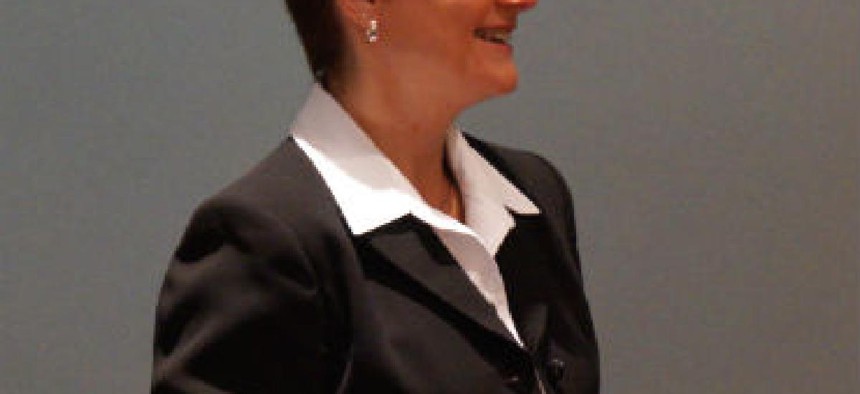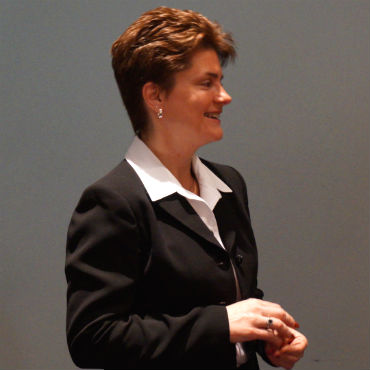SBA CIO is 'burning bridges' to push modernization

Small Business Administration CIO Maria Roat said 2018 is all about consolidation and getting federal staff comfortable with ongoing cloud migration.

It has been a year since Maria Roat took over as the Small Business Administration's CIO. The former Department of Transportation CTO made waves when she put a moratorium on buying new hardware.
But adopting technology isn't the primary challenge, it's rallying everyone around the modernization mission.
"Technology is probably the easy part," Roat said during a Bloomberg BNA event on Oct. 26. "The harder part is bringing everybody together in the same direction. Getting everybody on the bus -- this is where we're going."
When Roat took office, her staff was down 30 percent. So she hired a deputy, a CTO and other senior people to help fill out the workforce needed to assist with training and cloud migration. She now has 70 federal workers and approximately 200 contractors, and she is looking to add more federal program managers.
Roat said the key to SBA's hyper-driven modernization is constant "knowledge transfers" between contractors and federal staff.
"I don't care if you're a fed or a contractor. You are part of a team, and that's how we're working." But a major challenge has been getting veteran IT staff up to speed with cloud infrastructure.
"Some of my [federal] folks are good network people and they're good engineers, but they've never worked in the cloud space before. So they don't understand the cloud per se -- they've always been in the network [environment] where they've got a router, a switch, a circuit," Roat told FCW.
"There's a learning curve from traditional IT network engineering to moving to cloud and understanding where your data resides, how it moves, how does your network traffic change.... And when you start putting security appliances in the middle of it, whether it's an Einstein or something else, you need to understand where they plug in in the network."
To ease the growing pains, Roat said her office offers weekly lunch-and-learns, paid training, and it makes sure federal staff are "at the table working with the contracting experts."
The past year was about shutting down data centers, migrating to Windows 10, implementing Microsoft Office 2016, and upgrading infrastructure. But 2018 will see SBA shifting from a foundational focus to consolidation.
"As we upgrade the infrastructure, moving to fiber, that's a whole lot more capability that we're going to be able to put on the network. Skype for Business is going to give us a lot more capability, upgrading our website, can we do chatbots and stuff like that," she said, mentioning pilot programs around virtual counseling and customer relationship management.
"My job this last year has just been so focused on getting things moving within SBA, all that behind the scenes stuff that nobody sees," Roat said. Now, she's starting to dive more into questions around cybersecurity issues and how they affect small businesses is coming.
"When a business owner asks, 'What do I do?' How do I answer that? So I'm starting to ask those questions internally," she said. "I don't have a lot of answers on that."
To fix that, Roat said she's evaluating the tools and educational training that SBA offers businesses and determining what more it can do to ensure they are protected from growing threats like ransomware.
Roat has many plans for SBA that might not all come to fruition, but that's ok, she said, as long as she's asking the questions to see if it's possible.
"We're not going back," she said. "We're burning bridges; we can't go back to the old ways."



